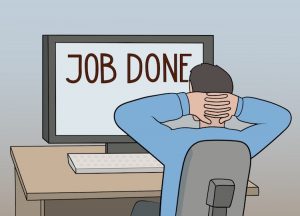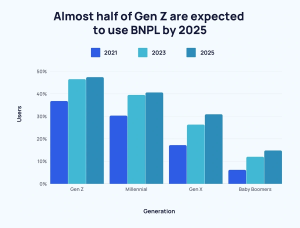Regardless of what others might say, there is nothing more valuable we have than ourselves. It is comforting knowing we can rely on others, but in times of crisis, we can rely only on ourselves with certainty.
We have realized through the COVID-19 pandemic that the most unpredictable events don’t only happen in movies. Instead, life is full of challenges, and we are often not prepared for them. That affects us on both personal and professional levels.
Coexisting with a virus disrupts what we consider to be normal. It breaks our routine and affects our work habits. Despite how resilient one might be, adapting to the new realm requires an extensive effort that often takes a toll on our physical and mental health.
Even though the pandemic doesn’t spare anyone, employees also struggle with the fear of losing their jobs and having to show up at work and be productive. HR professionals also don’t have it easy because they have to keep the workplace spirit up and encourage workers to stay engaged.
It is no surprise that up to 30.2 percent of U.S. adults reported depression or anxiety between April 2020 and March 2021. Struggling with mental health leads to lower performance, motivation, and engagement.
As a result, the estimated cost to the global economy is US$ 1 trillion per year in lost productivity. That is a reminder that nurturing wellness and well-being is one of the essential things we owe to ourselves.
HR has the power to motivate employees to prioritize their health and invest in their future. After all, that is how one improves their future and develops leadership.
What Does it Mean to Invest in Yourself?
Besides the technical and soft skills development, HR should also implement workshops or programs that teach workers how to invest in themselves outside of work too. That will empower them and ensure they gain long-term experience and motivation.
As an HR, if you decide to implement self-investment programs, identify what it means to invest in yourself. People often think that’s solely financial, but one doesn’t need to pay to grow and learn new things.
Self-development also requires time that one is willing to invest into their future, improving their skills, and expanding knowledge. Although it also has a financial aspect, you don’t necessarily have to give thousands of dollars into enhancing your well-being or profession.
First of all, that means you should prioritize self-care. Take care of your body, mind, and feelings.
Adopt healthy habits and ensure you are purchasing things and food that improve your well-being. Otherwise, if you fall ill, you will probably have to invest much more financially into medicines than you would into prevention.
Make sure you pay attention to your physical health but don’t neglect your mind. Use every opportunity to expand your knowledge and build a better version of yourself. That way, you will also invest in your future, career, and leadership.
Well-being and Self-investment Initiatives
Besides developing and rolling out the recruitment process, HR takes care of all the steps that come before and after an individual is hired. As a department, human resources should foster employee development and emphasize growth and overall well-being.
It is why it’s a great idea to implement self-investment initiatives that encourage workers to take all the chances to improve themselves and learn how to invest in themselves. Companies shouldn’t only care about what an employee needs to enhance to be better in their job role.
Execs and HR should also pay attention to nurturing continuous growth, even outside of work hours. Besides ensuring happy and productive workers, that is also a path to establishing future leadership.
That is especially significant in the COVID-19 era when well-being is finally becoming the priority, even in the workplace. Hence, HR can build wellness initiatives around the new realm, showing employees how to become more resilient and healthy by investing in themselves.
For instance, these programs could explain to workers the importance of well-being and provide them with techniques to nurture their mental and physical health.
Here are a few free investments people often forget they can (and should) afford every day.
- Sleep – Nowadays, sleep is underrated, and many employees don’t get enough hours of rest. However, job performance and sleep are closely connected. For example, sleep loss makes it more challenging to maintain focus, attention, and vigilance. It is why workers should remember to get between seven and nine hours of rest to be productive and healthy.
- Fitness – Social distancing and remote work enforce people to sit more than they ever did, which often affects physical health. However, employees should invest in staying active because it can improve the overall life quality.
- Meditation – Another underrated free self-investment is taking time to meditate, relax, and reduce stress. Meditation has various benefits that improve one’s well-being, but one of the most significant is enhancing cognitive inhibition and data-driven information processing.
Last year has hit the world with a crisis that will leave long-term aftermaths on people’s well-being. Yet, it has also brought wellness to the forefront, including in the workplaces.
As a result, HR should consider implementing self-investment and well-being initiatives to encourage workers to invest in themselves and their physical and mental health. It is how human resources can nurture employee development and leadership.
Business & Finance Articles on Business 2 Community
(77)
Report Post




